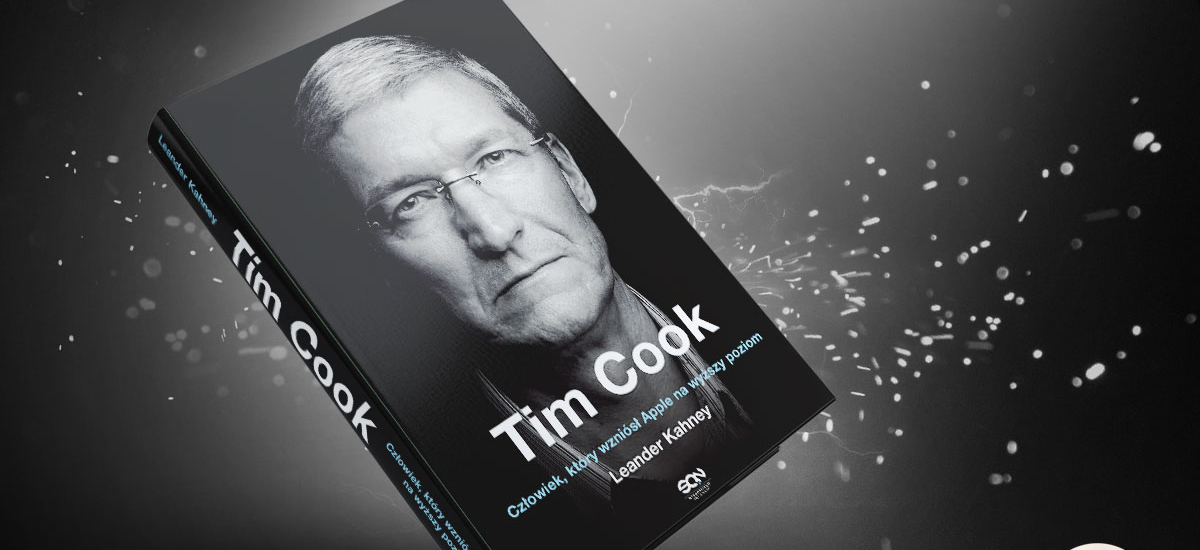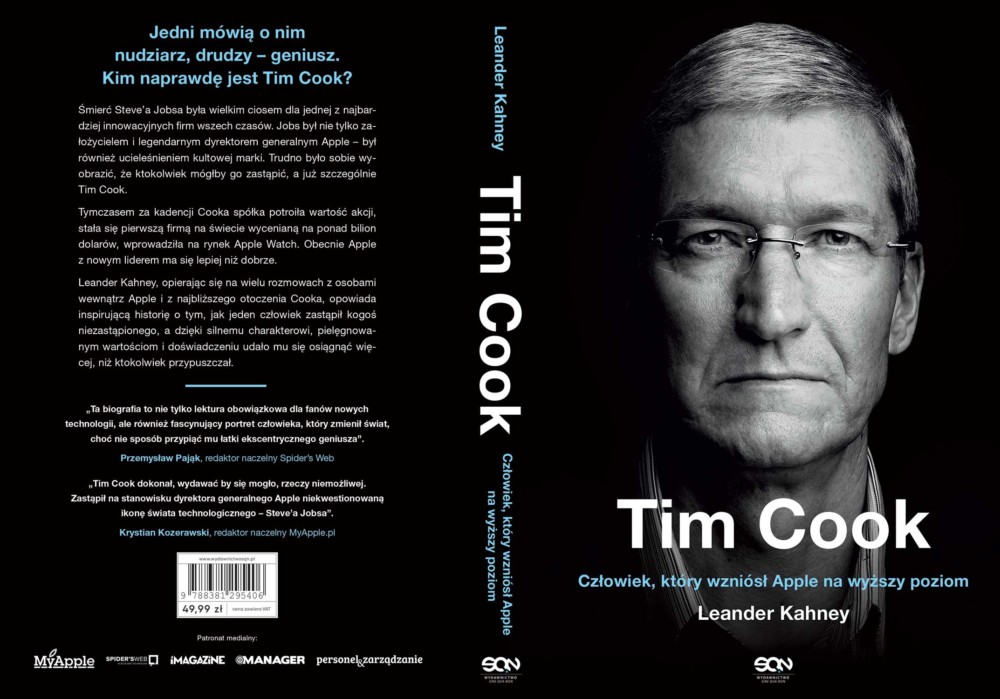Steve Jobs or Tim Cook - who better managed Apple?

How can you replace the icon that was Steve Jobs? Many doubted that the accountant would be able to run the largest company in the world. Meanwhile, Apple for Tim Cook is doing better than ever, and new products are becoming hits again.
Very often you can hear the complaints of Apple fans that the company behind Jobs was different - better. She was guided by the magical halo of Jobs' visionary genius. "Jobs falls in the grave" - you could read when the next generations of iPhones or iPad with the stylus were launched.
Meanwhile, since August 24, 2011, when Cook took over the reins of Apple, his company's share price quadrupled, which resulted in Apple exceeding $ 1 trillion. Astronomical sum! How did this happen? This is what Leander Kahney talks about in his new book:
Tim Cook The genius that brought Apple to new heights
The title itself suggests that the book will be extremely gracious to Cook. This, first of all. Secondly, the author is also the publisher of the Cult of Mac blog, and ate his teeth when writing articles about Apple. This is what strikes you when you first contact the book. She is perfectly photographed. The experience from Kahney's earlier works probably helped: Jony Ive: The Genius Behind Apple's Greatest Products and Inside Steve's Brain (Jobs biography).
It is very difficult to resist the impression that the author based much of the book on the contrast between Jobs and Cookie. The first was the product man, the second was the process. The first was ingenious and a bit crazy, the second calm and analytical. What qualities are better when managing a giant company? This is obviously a rhetorical question. Kahney notes that even when Jobs was still a CEO, Apple was already in charge of Cook, and not just when Steve had to go to the hospital.
Let's meet Tim in his youth.
He grew up in the southern United States, Alabama, known for his conservative views. One of the most important curiosities about Cook comes from these times - Kahney writes:
In the early seventies, when he was in the third grade of high school, he was riding in the evening on a less-frequented suburban road on his new bike with ten gears, when he noticed the fire off the beaten track. He drove up to this place and saw a burning cross, and around him people from the Ku Klux Klan in white capes and hoods. This organization reached a record number of 4 million members in 1925, and since then it has shrunk to just a few thousand, but in the South people from KKK still met, and not so rarely. That congregation set up its burning cross on the ground belonging to a local black family. Cook shouted without hesitation, "That's enough," and they all looked at him. One of the hooded men bared his face. He was a deacon from one of the churches in Robertsdale. He told Cook to leave. The young man experienced it very much.
The author is very deterministic about events from Cook's past. We are finally the sum of our choices and experiences. That's why Cook builds Apple has several foundations. In addition to tolerance and diversity, they are also care for the environment, education or care for the supply chain. This last Cook took from his first companies.
At IBM, he learned the secrets of Just-in-time manufacturing, which he later perfected at Compaqu.
This experience helped him pull Apple out of the hole after 1998. The company under Jobs' government had problems with the supply chain and storage. She produced too much and could not sell everything, which generated additional storage costs. Thanks to his talent for process optimization, Cook climbed the levels of corporate career to the position of COO. Unfortunately, we do not recognize his relationship with Jobs - and this is associated with the biggest complaint I have to the book.
Tim Cook did not agree to talk and reveal additional details of his own life, or even comment on the past. Kahney managed to get statements from several directors at Apple, but this does not mean that the lack of the main character is less severe. As a result, the book becomes a compilation of articles, previous interviews or press releases that Apple fans know well.
The book contains a lot of information and is written with verve.
However, a difference in the approach of Walter Isaacson (author of the biography of Jobs) and Kahney is shown here. The first was very critical of the extraordinary and multidimensional persona, which was Jobs. There was no lack of praise, but also an objective view of the flaws. Kahney's cook is more one-dimensional, idealized.
It is much harder to write a book about a man who loved privacy and tried to transplant it into the world of Apple. After all, Cook was of the opinion that the company could not release the FBI backdoor after the attacks in San Bernardino. He also criticized social media for preying on users.
Cook's biography can be treated as a kind of business lesson that teaches that he was worth faithful to his ideals and sometimes dare to take a risky step. This is personified by Cook himself, for whom the first step into the unknown was certainly the transition to Apple in crisis. The second revealing to the world your sexual orientation three years after taking control of the world's largest company. Cook was not ostracized. On the contrary, he was recognized for his courage to share the truth in a tolerant California community.
Cook wants to make the world a better place.
Kahney writes:
Cook through his actions proves the truth of the saying that you can live a good life well. Steve Jobs once said that when it comes to connecting people in groups in the name of a common goal, humanity has never come up with anything better than a company. Cook goes a step further. He said: "In my opinion, companies should not only deal with trade-related matters. For me, a company is simply a collection of people. And since people should be guided by values, companies should be guided by values. " Under Cook, Apple was the first company in the world to reach a trillion dollars, but this is not the end of its achievements - thanks to it, Apple has become a better company and the world has become a better place.
I can definitely recommend the book to people who haven't heard much about Cook yet. I am not sure if they agree with the author about the genius of the Apple boss, but they will definitely spend a few nice evenings with an engaging reading.

Spider's Web patronizes Tim Cook's biography.
In the Polish version of the book "Tim Cook. The man who raised Apple to a higher level "by Kahney Leander will be able to read the editorial of our editor-in-chief, Przemek Pajak.
The book can be bought on Empik.com for PLN 37.49 (cover price is PLN 49.99), as well as in Empik stores all over Poland and in good bookstores.
Steve Jobs or Tim Cook - who managed Apple better?
Comments
Post a Comment